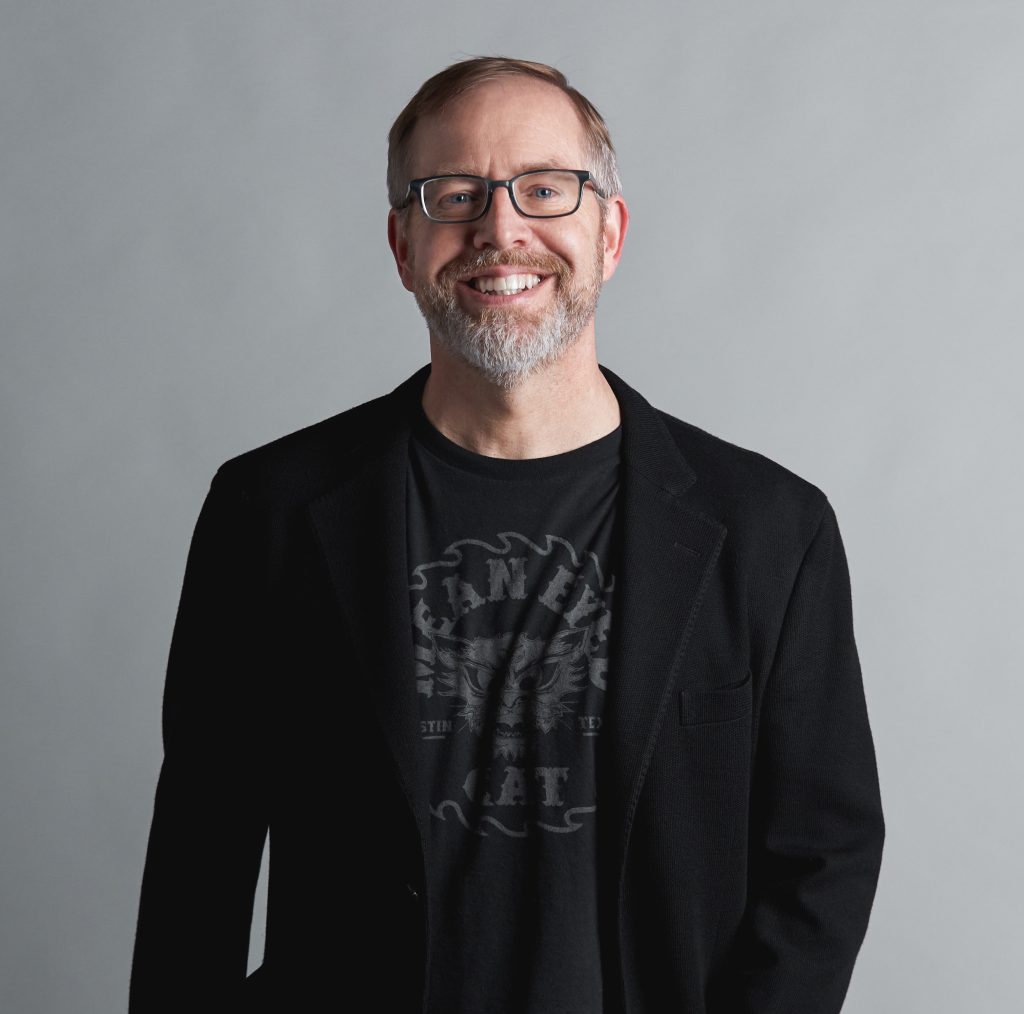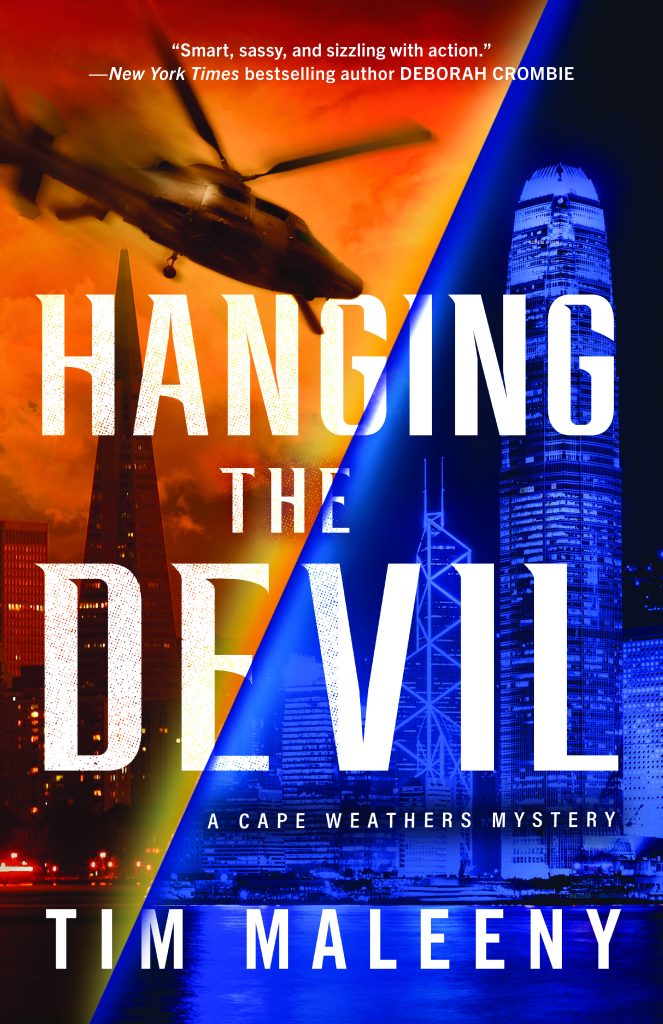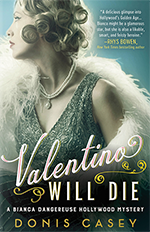
My honored guest at Tell Me Your Story for February is TIM MALEENY, the multiple award-winning author of the Cape Weathers mysteries and the bestselling comedic thriller JUMP, which Publishers Weekly describes as “a perfectly blended cocktail of escapism.” His latest novel is Hanging The Devil, a global art heist which Library Journal calls “relentlessly fast-paced with delightful dry humor” in a starred review. He has won both the Macavity and Lefty Awards, written from the point of view of an octopus, and once killed a character with a toaster. The Irish Times says, “If comic crime fiction is your thing, Maleeny delivers in spades.” That’s the thing I particularly like about Tim’s work. He can write a great mystery and write it funny at the same time! He lives and writes at an undisclosed location in New York City. Check out Tim’s web site at https://timmaleeny.com
For Just One Person
by Tim Maleeny

“Write to please just one person.” —Kurt Vonnegut
This is a story about writing for someone who is no longer here.
I lost my parents more than a decade ago. Both unexpectedly, each too soon. They grew up during the depression, followed by years of rationing after World War II, and consequently never threw anything away. Nothing wasted, everything repurposed and reused, from refurbished lights and electric sockets to clothes and accessories passed down by relatives.
Throwing anything away was anathema to their generation’s mindset. You never know if you might need that one day. And yet many of the things they kept were more fanciful than functional, including every book they ever read, treasures from their travels, knickknacks and collectibles found at garage sales in our small town.
If you’ve ever watched the original television episodes of The Addams Family you have a good idea what our house looked like, minus the guillotine and Cousin It. Not spooky or cluttered, just interesting—and, to a kid like me, a treasure trove of untold stories. A book on the amazon river could be found on a shelf next to a hand-carved blowgun. Samurai swords, a catcher’s mask from the thirties made of leather and steel, brass firehoses and a taxidermy squirrel, all accent pieces in an otherwise perfectly normal suburban home.
Fortunately for my brother and me, the books were as accessible as our ability to reach the shelves on which they were stacked two rows deep. Dime paperbacks from the thirties and forties, pulp adventures, historical novels, science fiction and fantasy, shelved alongside medical textbooks and volumes on chemistry, medicine and math.
My dad was a chemist and mom was a nurse, so math and science were big in our family. We had a lab in our basement, and more than once I came close to inadvertently blowing something up or melting the cup I was holding. Naturally when I headed to college the only question was which branch of science I was going to study.
I took chemistry, astronomy, math, and physics, but always felt like a quark in a particle accelerator—never where I was supposed to be from one moment to the next. Whenever my thoughts wandered during a particularly dull lecture, instead of turning to the cosmos or the quantum realm, they led me back to the musty smell of old paperbacks.
After graduating with a degree in computer science I went immediately to business school, already making a left turn as I sensed the job I wanted was one I’d have to create for myself. An internship led to the start of a career in advertising at a time when agencies were creatively-led, places where art and commerce converged. I discovered a talent for puzzling through a business problem and helping companies tell their stories.
Those were the years when I started to travel for work, and no matter where I went, there was always a paperback in my bag. I was writing narratives for brands, finding storylines in the business world, but as the years passed and the flights got longer, my mind wandered back to the bookshelves in my childhood home.
That’s when I started to write fiction.
When you’re writing a novel, you’re simply telling yourself a story. If you’re an avid reader and you write something you’d want to read, then odds are other people will want to read it, too. But ask any successful author if they have an audience in mind when they’re writing and their answers may surprise you. They aren’t writing for the mass market or some generalized audience of readers. The process of putting words on a page is surprisingly intimate and, in every way imaginable, deeply personal.
Kurt Vonnegut famously said he wrote his novels to be read by his sister, Alice, until she died of cancer at age 41. “I didn’t fully realize she was the person I was writing for until after she died,” Vonnegut said in a 1977 interview. He never said for whom he wrote after he lost Alice, but I suspect it was still her, even though she was no longer there.
Unconsciously at first, I began writing stories for my parents, drawing inspiration from the mementos and mystery of the house where I grew up. One of the things readers and reviewers seem to enjoy about my novels is how the narrative blends different genres, mixing humor with suspense, history and romance withing the framework of contemporary mystery. For me a quirky cast of characters and unexpected plot twists belong under the roof of a novel much like the exotic mementos that fit into every nook and cranny of my parents’ house.
I lost my father before my first story was published. That short story, which went on to win the Macavity Award and made me a successful writer, is a tale of suspense involving a married couple who happen to know a lot about chemistry and poisons and play a deadly game each year on their anniversary. Needless to say, my parents were the inspiration for the two clever characters, and the wry humor came straight from half-remembered dinner table conversations.
My mother gave me the greatest gift you can offer any writer and let me send her the chapters of my first novel as I finished each one, reading the story in serial form and giving comments along the way. She died the winter before my first novel was sold for publication and never held it in her hands or saw it on the bookstore shelf, but she is as much a part of that story as the characters.
My remarkable wife, Kathryn, now reads my pages long before they are fit to see the light of day, and as a neurotic writer—as all writers are—I am eternally grateful that her comments are always insightful and never paralyzing. She’s my first reader and most trusted editor, but my parents are still two readers for whom I’m telling stories.
Perhaps writing is a way to pay my parents back for the gift of those bookshelves and a childhood filled artifacts of adventure. Authors often say, “write as if your parents are dead,” the thought being that writers may censor themselves rather than offend their living relatives, so they dial-down the sex and profanity or dilute their jokes to avoid any awkward questions at Thanksgiving.
I couldn’t disagree more.
You don’t get to choose your parents; you’re issued a ticket in a cosmic lottery. Looking back, I’d say I won the jackpot. And if you can’t write a story for the people who inspired your love of books, then you’re not ready to sit behind a keyboard and open your heart to the blank page.
Kurt Vonnegut was right, you write for a small audience, sometimes a single person, in my case a party of two. And although they’re no longer with us, they’re still right here on every page.
As long as I keep writing.
____________________



More Places to Go
Donis on Facebook
Type M for Murder